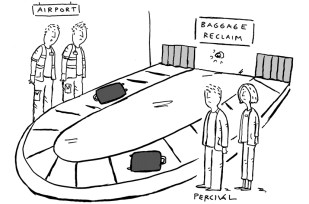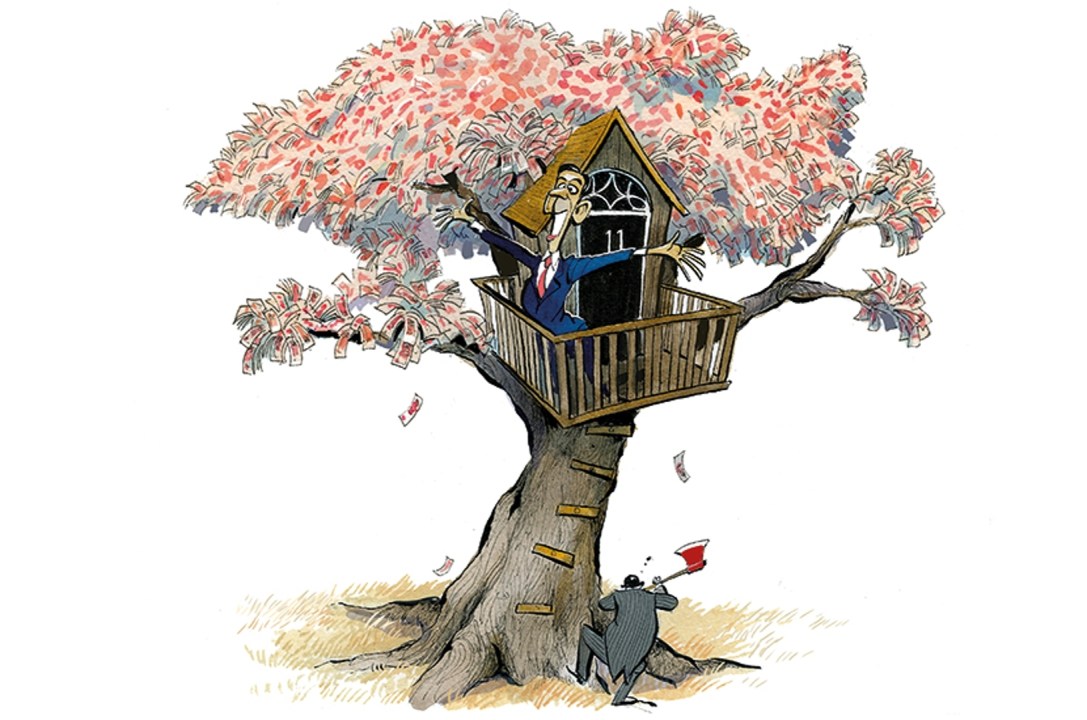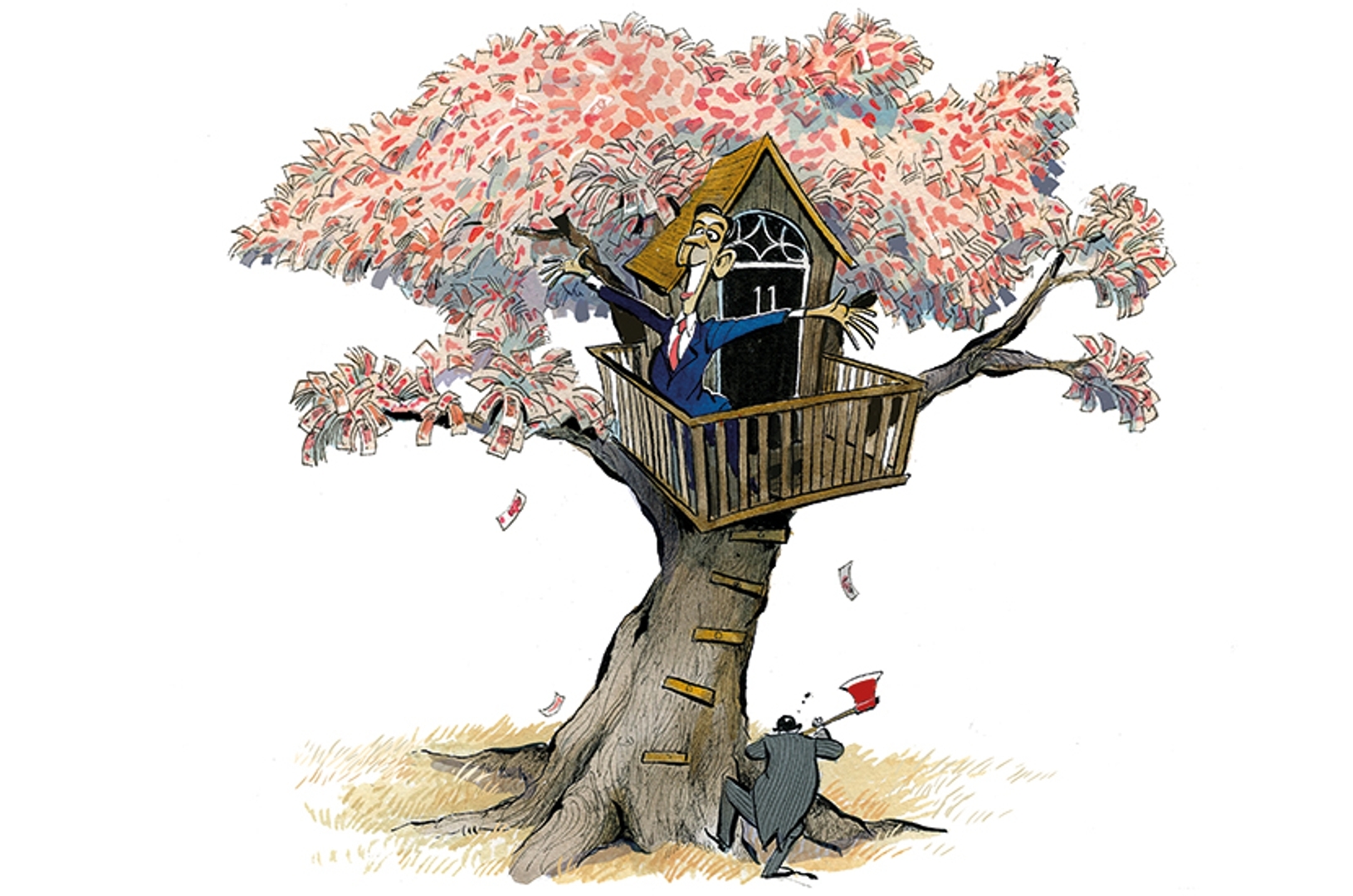When future historians look back on 21st-century mortality statistics, they will struggle to find anything out of the ordinary in Britain in 2020. When they look at the economic data they could be forgiven for thinking we were hit by an asteroid.
The Office for Budget Responsibility predicts a fall in GDP of around 12 per cent in 2020, the equivalent of having the 2008-09 recession twice in one year. The second quarter saw GDP fall by 20.4 per cent, breaking the record set during the Great Frost of 1709. The economy rallied by 6.6 per cent in July — which sounds impressive until you consider that it only took the economy back to where it was in the spring of 2013. The full impact on unemployment won’t be known before the furlough scheme ends, but the OBR expects it to treble to over four million, the highest number since the 1930s.
The furlough scheme cost £35 billion and is one of many reasons why the public finances are in such a wretched state. In July, total government debt passed the £2 trillion mark for the first time. The national debt has doubled since ‘austerity’ began in 2010 and now amounts to 104 per cent of GDP, a level not seen since the immediate aftermath of the second world war.

At the start of the year, the OBR expected public-sector net borrowing to be £55 billion. It is now forecast to be £322 billion. Public spending is predicted to rise by £182 billion while tax receipts fall by £130 billion. Nearly every form of tax is bringing in smaller revenues. It is no surprise that fuel, alcohol and air passenger duties have dwindled, but the government is also expected to get £21 billion less in corporation tax than originally forecast; £23 billion less in income tax; £7 billion less in stamp duty; and £11 billion less in business rates. These are only forecasts, but it’s worth noting that each of the OBR’s four predictions since March has been more pessimistic than the last.
A second lockdown would be catastrophic beyond words. Take the damage done by the first lockdown and approximately double it. In some ways, it could be less severe (it might be shorter), but in many respects, it would be worse because it will deliver the coup de grâce to businesses already on the brink. How many shops, pubs, restaurants and gyms will get through the winter without customers? How long can lower league football clubs play games in empty stadiums before they go bust? Whole industries would be hung out to dry.
Future generations will be bewildered at how a prosperous country threw its economy off a cliff
At the start of lockdown, many commentators — myself included — were reasonably sanguine about the spike in government borrowing. The circumstances were exceptional and the borrowing was a one-off. The jobs and businesses being protected were viable in normal times and it made sense to mothball them rather than allow them to go to the wall. The rise in borrowing was temporary, not structural, and there was reason to think the economy would return to something like normality in 2021. People having money to spend but nowhere to spend it is a better problem to have than people having no money to spend.
A recession was inevitable but there were hopes it would be V-shaped as businesses reopened and shoppers made up for lost time. That optimism began to wither when a three-week lockdown to save the NHS became a six-week lockdown to flatten the curve and then a 12-week lockdown to… what? Eliminate the virus? Prevent death at any cost? Flatten the economy? If there has been a strategy since May, it has never been articulated. If I had to guess, I would say that the plan is to ensure that Boris Johnson is never again accused of acting too slowly.
Only a sucker would fall for the idea that the next lockdown will be a mere ‘circuit breaker’ lasting a fortnight. Supporters of lockdown are adept at switching between cases and deaths depending on which is rising. Deaths lag behind cases by three weeks, so even if a two-week circuit breaker reduced transmission, the number of deaths would still be rising by the end of it. With the likes of Piers Morgan howling from the sidelines and the ‘Zero Covid’ fantasists re-energised, it is hard to imagine the government ending lockdown while the death rate is climbing. You can almost hear the slogan now: ‘One last push to save Christmas!’
And when case numbers rise again in the new year, as they will, who’ll resist a third lockdown, especially with the promise of mass vaccination just around the corner? All the while, the money-printer will be whirring. According to the Economist, the central banks of Britain, the eurozone, Japan and the USA have ‘created’ (i.e. printed) $3.7 trillion this year. If this does not lead to inflation, the economics textbooks will need rewriting. Higher inflation means higher interest rates and suddenly the cheap money being borrowed won’t be so cheap.
In the long run, Britain can withstand bungling politicians shaking the magic money tree. Historic levels of debt and unemployment won’t finish us, but the overreaction to Covid-19 will leave scars that define the decade. Future generations will be bewildered that a prosperous country threw its economy off a cliff in a failed attempt to suppress a disease that kills less than 1 per cent of those infected, most of them in their eighties and nineties. They will have every reason to wonder, since they will be the ones paying off the debt — or, more likely, paying the interest on the debt.
The mounting financial cost is easy enough to measure, but the true cost goes much further than that. How strange that people who believe the dubious factoid about 130,000 people dying of ‘austerity’ see no negative health consequences from this economic self-immolation. The scale of the disaster is so numbing that even the prospect of a no-deal Brexit barely registers as a problem any more. Unless the government develops a backbone, the 2020s will make the ‘lost decade’ of the 2010s look like a golden age.







Comments